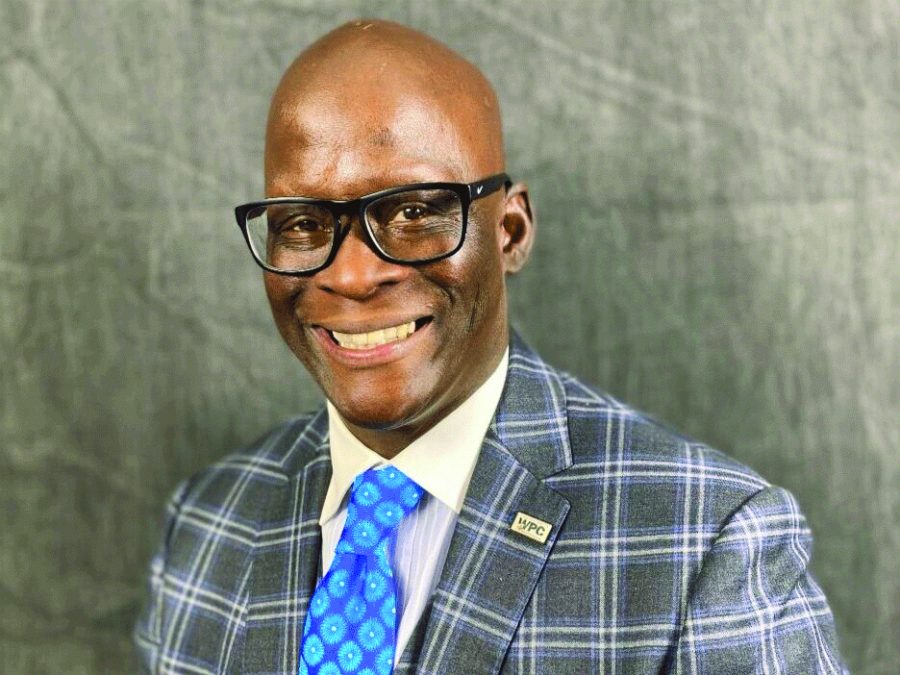Eddie Moore Jr. Delivers “Unity in Diversity” Keynote for Colgate’s MLK Week Celebration
While Martin Luther King Jr. (MLK) Day can often be reduced to a palatable, child-friendly celebration of equality which firmly relegates racism to the distant past, on Jan. 27 Eddie Moore challenged that impression at Colgate.
Moore, an author, academic and founder of both the White Privilege Conference and The Privilege Institute, spoke on dismantling systems of privilege and injustice in the United States in his keynote speech for Colgate’s MLK day celebration.
Director of ALANA Cultural Center Esther Rosbrook explained the process of selecting a keynote speaker, and why Moore stood out to her and her team.
“Moore came to Colgate in the early 2000’s,” Rosbrook said, “and I like the way he can connect across generations, and the message that ‘this is the time,‘ that we all have the responsibility to take action and be a part of that effort.”
Moore’s message is especially necessary on a holiday that is often categorized by little more than a day off involving some passive reflection on race relations.
“MLK day has always been a holiday I remember at 4:00 p.m. the day of,” first-year Leah Massa said. “Though we remember Martin Luther King’s contribution to society and the fabric of modern day race relations, we often trivialize the time we set aside to remember him. I think that we should treat MLK day like other remembrance holidays and do more.”
A call to action seems to be exactly what we need to honor King’s legacy without whitewashing it. Moore takes on the task of both clarifying who King was, and ensuring that his legacy is understood.
“Close to 80% hated that brother at the time of his death,” he said. “His knowledge, some would argue, cost him his life. I’m here in the spirit of MLK to say that now is our time, especially to the young folks here.”
Early into his presentation, Moore urged the audience to feel comfortable going to him for guidance.
“Consider me a relative from here on out,” he said at the start, pointing to a screen displaying his email address, LinkedIn page, and P.O. box. “If I can be a resource as you evolve, as you go on your path in any way, this is how you find me.”
And indeed, the student body did find him. After he wrapped up his speech, students swarmed around him for the greater part of an hour, and he shook every hand and addressed every question.
“One important message that … Moore shared with everyone was ‘Don’t ever lose sight of the focus itself … take advantage of the energy and opportunities that [we] have at Colgate,’” said Rosbrook. “He understands the resources and willingness that Colgate students have to make a change.”
It is Moore’s specificity to and understanding of audience and context that make his work so impactful: he does not speak in vague terms, and seeks out images when he makes a point.
“Word on the street is that this generation is different,” he said, looking pointedly into the crowd. “Y’all are gonna be the ones to move us along. How are you feeling about that? Where will be your attention over these next 25 years? Crypto or poverty? Mars or equality?”
The present and future are of the utmost importance to Moore, and he left his audience with a number of challenges and questions to reflect upon.
“Now I’m passing you the baton,” he said, pretending to pass an object over to the crowd. “I’m saying you’re gonna take this over 25 years from now. Can you do better? Will you do better? Now is your time, that’s what I want you to think about.”






